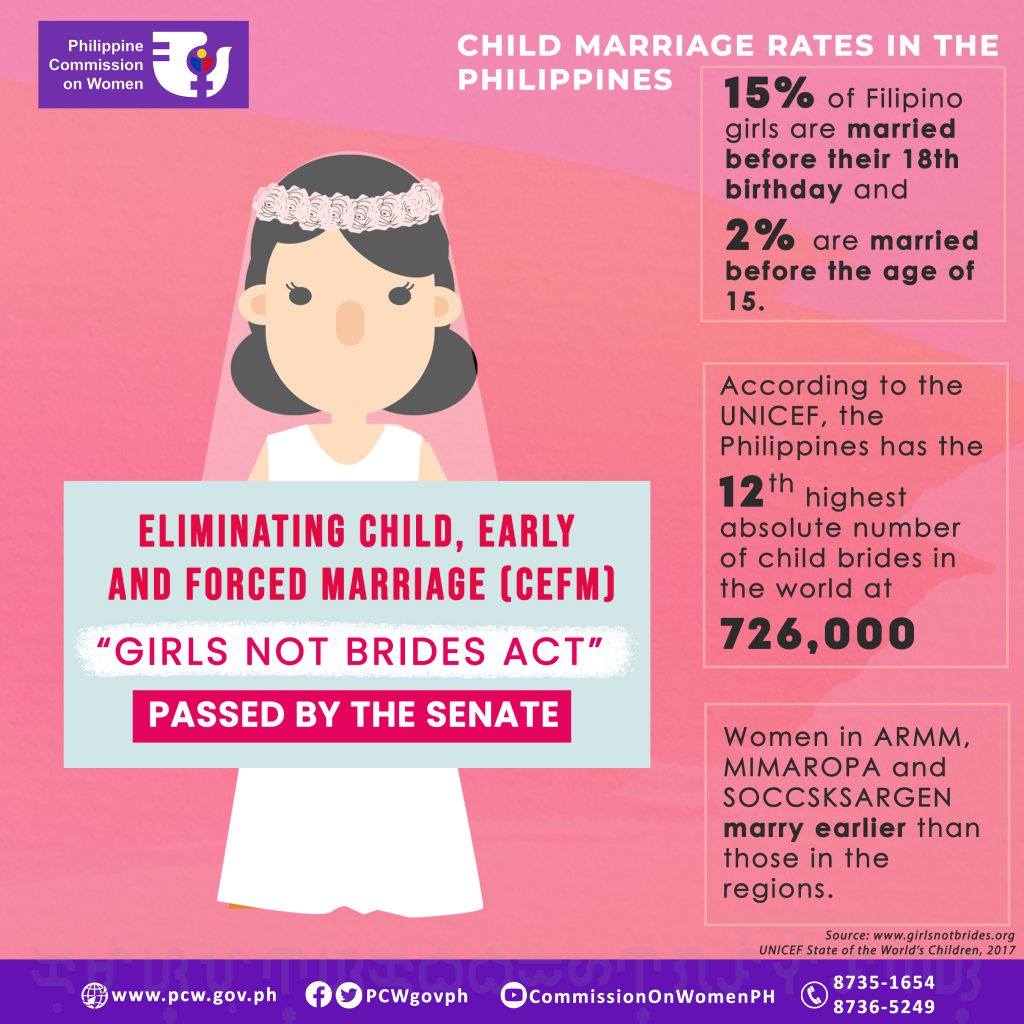PCW lauds passage of bill criminalizing child marriage at Senate

The Philippine Commission on Women lauds the passage of the “Girls Not Bride Act” at the Senate and continues to call for its approval into law. Voting 21-0, the chamber approved Senate Bill No. 1373 which declares child marriages as illegal on November 9, 2020.
The bill defines child marriage as “any marriage entered into where one or both parties are children (persons below 18 years old), and solemnized in civil or church proceedings, or in any recognized traditional, cultural or customary manner.” If enacted into law, a person who causes, fixes, facilitates, or arranges a child marriage shall suffer the penalty of prision mayor in its medium period and a fine of not less than P40,000.
Should the perpetrator be an ascendant, step-parent, or guardian of the minor, the penalty will constitute a 12-year imprisonment, a fine of not less than P50,000, and the loss of parental authority over the minor. Individuals who officiate the child marriage shall also be punished and fined.
Child, Early and Forced Marriage in the Philippines
In the Philippines, the legal age of marriage under the Family Code is eighteen years old. However, in some religions and cultures, child marriage is practiced. Some allow the marriage of a female at the age of puberty, which is presumed upon reaching the age of fifteen. Other indigenous peoples permit early marriages, but these may not be registered because the Republic Act No. 8371 or the “Indigenous Peoples Rights Act” provides that fundamental human rights and freedoms as enshrined in the Constitution and relevant international instruments are guaranteed to indigenous women. Thus, no provision of the said law must be interpreted so as to result in the diminution of rights and privileges already recognized and accorded to women under existing laws of general application.
Relevant international instruments applicable to indigenous women include the Convention on the Elimination of all Forms of Discrimination Against Women (CEDAW) and the Convention on the Rights of the Child (CRC) which were ratified by the Philippines in 1981 and 1990, respectively and prohibit child marriages.
The CRC defines a child as every human being below the age of 18. The CEDAW states that the “betrothal and the marriage of a child shall have no legal effect, and all necessary action, including legislation, shall be taken to specify a minimum age for marriage and to make the registration of marriages in an official registry compulsory”. Hence, only indigenous peoples who are of legal age may enter into a valid marriage.
The passage of the law at the Senate level and the numerous filings of the counterpart measures at the House of Representatives reflect Congress’ firm resolve to carry out the Implementing Rules and Regulations of the Magna Carta of Women and uphold our state commitments under international laws, including the above mentioned CRC and CEDAW.

